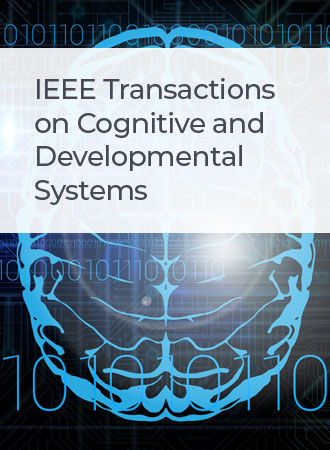Deep Neural Networks for Automatic Sleep Stage Classification and Consciousness Assessment in Patients With Disorder of Consciousness
IF 5
3区 计算机科学
Q1 COMPUTER SCIENCE, ARTIFICIAL INTELLIGENCE
IEEE Transactions on Cognitive and Developmental Systems
Pub Date : 2024-03-26
DOI:10.1109/TCDS.2024.3382109
引用次数: 0
Abstract
Disorders of consciousness (DOC) are often related to serious changes in sleep structure. This article presents a sleep evaluation algorithm that scores the sleep structure of DOC patients to assist in assessing their consciousness level. The sleep evaluation algorithm is divided into two parts: 1) automatic sleep staging model: convolutional neural networks (CNNs) are employed for the extraction of signal features from electroencephalogram (EEG) and electrooculogram (EOG), and bidirectional long short-term memory (Bi-LSTM) with attention mechanism is applied to learn sequential information; and 2) consciousness assessment: automated sleep staging results are used to extract consciousness-related sleep features that are utilized by a support vector machine (SVM) classifier to assess consciousness. In this study, the CNN-BiLSTM model with an attention sleep network (CBASleepNet) was conducted using the sleep-EDF and MASS datasets. The experimental results demonstrated the effectiveness of the proposed model, which outperformed similar models. Moreover, CBASleepNet was applied to sleep staging in DOC patients through transfer learning and fine-tuning. Consciousness assessments were conducted on seven minimally conscious state (MCS) patients and four vegetative state (VS)/unresponsive wakefulness syndrome (UWS) patients, achieving an overall accuracy of 81.8%. The sleep evaluation algorithm can be used to evaluate the consciousness level of patients effectively.用于意识障碍患者自动睡眠阶段分类和意识评估的深度神经网络
意识障碍(DOC)通常与睡眠结构的严重变化有关。本文介绍了一种睡眠评估算法,可对 DOC 患者的睡眠结构进行评分,以帮助评估其意识水平。该睡眠评估算法分为两部分:1)自动睡眠分期模型:采用卷积神经网络(CNN)从脑电图(EEG)和脑电图(EOG)中提取信号特征,并应用具有注意力机制的双向长短期记忆(Bi-LSTM)学习序列信息;2)意识评估:利用自动睡眠分期结果提取与意识相关的睡眠特征,并利用支持向量机(SVM)分类器评估意识。在本研究中,使用睡眠-EDF 和 MASS 数据集对带有注意力睡眠网络(CBASleepNet)的 CNN-BiLSTM 模型进行了实验。实验结果证明了所提出模型的有效性,其表现优于同类模型。此外,通过迁移学习和微调,CBASleepNet 被应用于 DOC 患者的睡眠分期。对七名微意识状态(MCS)患者和四名植物人状态(VS)/无反应清醒综合征(UWS)患者进行了意识评估,总体准确率达到 81.8%。该睡眠评估算法可用于有效评估患者的意识水平。
本文章由计算机程序翻译,如有差异,请以英文原文为准。
求助全文
约1分钟内获得全文
求助全文
来源期刊

IEEE Transactions on Cognitive and Developmental Systems
Computer Science-Software
CiteScore
7.20
自引率
10.00%
发文量
170
期刊介绍:
The IEEE Transactions on Cognitive and Developmental Systems (TCDS) focuses on advances in the study of development and cognition in natural (humans, animals) and artificial (robots, agents) systems. It welcomes contributions from multiple related disciplines including cognitive systems, cognitive robotics, developmental and epigenetic robotics, autonomous and evolutionary robotics, social structures, multi-agent and artificial life systems, computational neuroscience, and developmental psychology. Articles on theoretical, computational, application-oriented, and experimental studies as well as reviews in these areas are considered.
 求助内容:
求助内容: 应助结果提醒方式:
应助结果提醒方式:


